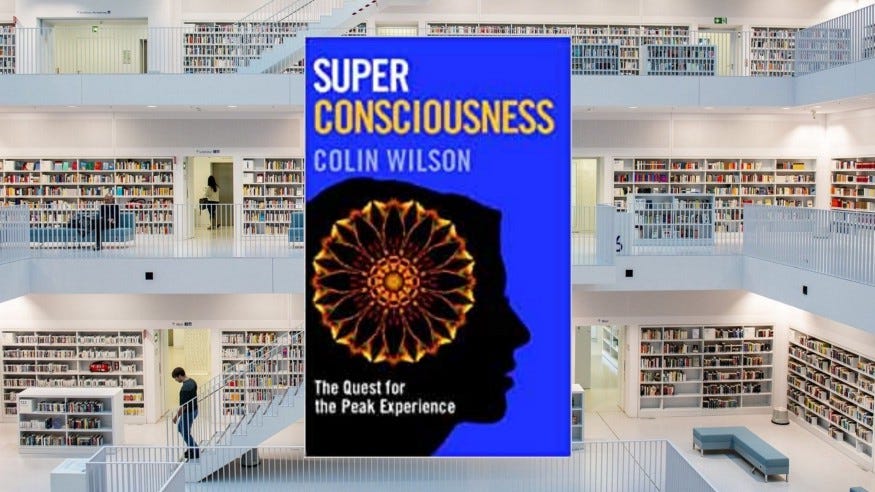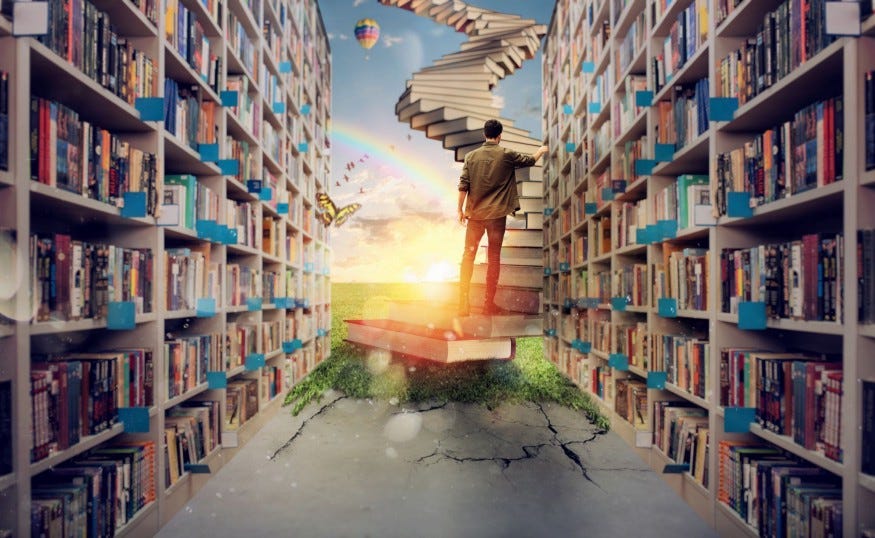This Famous Novelist Played Russian Roulette Against Himself and You’ll Never Guess What Happened Next
After he pulled the trigger, an unlikely event changed the entire world
“If a crisis looms before us, then suddenly disappears, we are hurled into a state of happiness and optimism.”
-Colin Wilson, Super Consciousness
There’s nothing that makes you feel alive like the prospect of your own imminent, violent death.
There was a great English novelist — who I will introduce to you in about five paragraphs from now — who experienced this vividly and directly, whose story can help you feel more alive every single moment from now on, without resorting to sticking a loaded gun in your mouth and hoping for the best.
But first, I have to tell you why you’re more like a jet airplane than you think you are, and why this can be a huge advantage to you in life.
You see, the New Existentialists (a branch of philosophy championed by Colin Wilson) believe in human agency, and the power of the individual to shift their own mental states (to a reasonable degree) in a positive direction by a direct effort of will.
One of Wilson’s biggest personal discoveries along these lines was that most people are living beneath their full capacity. His life’s work, in fact, was to help show people that they were like a great big jet airplane that was flying on only one engine.
That is to say, people are so much more powerful than they commonly believe.
One of the best ways to do this — to shock the human consciousness into full aliveness — is to confront a crisis of some kind, to step up and into a situation that demands that people fire up all their engines and fully engage with life.
In Super Consciousness and elsewhere, he tells stories of other well-known individuals who have done or experienced the same.
For example, there was the novelist Graham Greene who, as a teenager, would reach such an extreme state of boredom and apathy that he would go out into a field and play Russian Roulette against himself.
When he would pull the trigger and find that he hadn’t been killed by his own bullet, he would experience an intense rush of joy and pleasure in living that restored to him his sense that life was wonderful.
Similarly, the Russian novelist Fyodor Dostoyevsky was once arrested as part of a criminal plot against the Czar. Moments away from being shot by the firing squad, he was told that his sentence had been commuted and that his life would be spared.
He was being to Siberia for hard manual labor instead.
Upon hearing the news, Dostoyevsky felt much the same as Graham Greene did, in that he was filled with this intense, visceral love and appreciation for life, the strength of which he had never experienced before.
Obviously, these are extreme cases. You and I don’t need to go to the same lengths to experience similar feelings and to remind ourselves that existence is spectacular and that our whole lives stretch out in front of us, waiting to be lived.
We can conjure these feelings in ourselves, but we need to be intentional about it, and we need to be alive, active and engaged with life. We need to develop our crisis vision. What Colin Wilson calls super consciousness.
Almost any problem of sufficient severity or fascination can serve to help you “feel the life in you more intensely,” to use the phrase of the playwright George Bernard Shaw.
Life itself is a series of problems to engage with, puzzles to solve, and epic challenges to overcome. As Mark Manson wrote in his mega-bestseller, The Subtle Art of Not Giving a F*ck, we’ll never get to the point when we don’t have any problems anymore. Except maybe when we’re dead. Maybe!
Instead, life is a constant, challenging progression from the boring, stupid problems we have now, to more interesting, useful, and meaningful challenges we can rise to in the future.
Problems will come to you no matter what. It’s just a part of being alive.
But to a certain extent, we get to choose our own problems, and we get to decide what kind of meaning they have for us. We can either be passive — waiting for “better” problems to come to us — or we can go out in search of them ourselves.
Now, obviously, there are still massive existential challenges being faced by human beings all over the world that are just…horrible to contemplate.
No one is suggesting that the person working 3 part-time jobs to feed their family needs to just “look on the bright side,” or that mass starvation or water shortages are a “lesser” problem that people can just “graduate from” if they want to live more meaningful lives.
No one is saying that at all.
However, if you are somewhat better off, and you do know where your next meal is coming from, there’s a roof over your head, you have people who love you, etc., then the next step is to get better problems.
Come to think of it, throwing yourself into the struggle to solve the problems of hunger, homelessness, and war could give you this “crisis vision.” Life is service, and one of the best ways to feel more alive is to help others to feel more alive as well.
Regardless of what form your “crisis” takes, the important insight here is that the world is fundamentally good. Existence is heaven, and we’re living in that heaven right now, if only we could summon the internal energy and force of will to capture it and make it real.
As I explore in my full breakdown of Super Consciousness, the beauty of the world is always there; we just have to see past all the negativity and pessimism and fire up all our engines in order to see it more often.
As Colin Wilson relates in the book:
“Dostoevsky never forgot that ‘crisis vision’ — the recognition that the world is an incredibly beautiful place, and that we are prevented from seeing this mainly by laziness, negativity, and force of habit.”
Negativity and pessimism are choices — a different way of seeing the world — and part of knowing how powerful you already are is realizing that you can always make a different choice.
All the best,
Matt Karamazov








